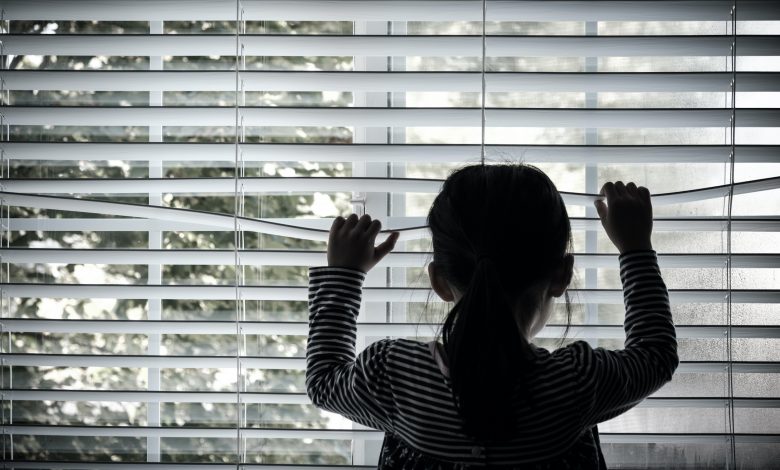
Lockdown could increase risk of child abuse’, says QF expert
خبير مؤسسة قطر يقول إن الإغلاق يمكن أن يزيد من مخاطر إساءة معاملة الأطفال
The Peninsula – Doha:
The COVID-19 pandemic has shaken the entire world in an unprecedented way, whether in terms of healthcare, education, or its effect on economies. And while it has forced drastic changes to the way adults live their lives, it has had an equal impact on children.
While children may be less prone to contracting COVID-19 or becoming critically ill due to the coronavirus, they have been doubly affected by the current crisis. As countries across the world enforce lockdowns, quarantines, and self-isolation in an attempt to control the spread of the virus, children are inevitably faced with a disruption of routines and a lack of opportunities to socialize at a critical time in their lives.
Rather than spending much of their day at school interacting with their friends and teachers, they are now confined to their homes with little to no outside interaction. According to Dr. Nadeem Jilani, Senior Attending Physician at Sidra Medicine, who oversees the Qatar Foundation member’s Child Advocacy Program, not only does this increase the chances of vulnerable children being in close quarters with existing abusers and with no outside intervention, but feelings of frustration among both parents and children could increase the risk of new cases of abuse.
“Vulnerable children who already face some form of maltreatment or abuse are particularly susceptible at this time, since potential interveners like school teachers and day-care workers do not have as much engagement with them,” Dr. Jilani said.
“The lockdown has led to a marked increase in cases of child abuse worldwide. National hotlines around the world are reporting an increase in calls relating to child abuse. Sidra Medicine’s Child Helpline has also been receiving calls from concerned school teachers and parents who know about children susceptible to abuse by caretakers or relatives,” he added.
The Child Advocacy Program at Sidra Medicine aims to help prevent abuse and support children undergoing any form of abuse, including through continuous and stringent follow-ups with those who are known to have been abused in the past.
“We try to encourage parents to engage in entertaining activities with their children and keep them busy, to avoid excessive feelings of boredom and frustration that cause tension in households,” Dr. Jilani said.
“New challenges are definitely coming our way, but we have been collaborating with local institutions like the Protection and Social Rehabilitation Center (AMAN) and looking to international organizations and agencies like ISPCAN for advice and protocols on how to handle this unique situation.”
COVID-19 and its repercussions also raise the question of what happens to children whose primary caregivers are diagnosed with the disease, potentially leaving victims of child abuse unprotected or in the care of abusers.
While there have been few such situations in Qatar to date, AMAN often takes vulnerable children into its care, and any such cases reported to Sidra Medicine are jointly handled by both institutions.
Dr. Jilani encourages caregivers, teachers, and children’s peers to be watchful for signs of abuse, whether through changes in behavior, visible injuries, or a general state of fear among children and teenagers.
He also advises parents to deploy caution and monitor children’s online activity, as they are likely to spend considerably longer periods online due to lack of physical interaction and schooling.
“This opens up new avenues for abuse like grooming, predatory behavior, and even sexual abuse,” he said.
“We are making efforts to ensure parents and educators remain aware of these risks and control them, but we also think it’s important to have honest conversations with children and teenagers about the dangers of using the internet.”
source: thepeninsulaqatar
الدوحة – الشرق:
هزت جائحة كورونا (كوفيد – 19) العالم بأكمله بطريقة غير مسبوقة، سواء من حيث الرعاية الصحية أو التعليم أو تأثيره على الاقتصادات. وبينما فرضت تغييرات جذرية على الطريقة التي يعيش بها البالغون حياتهم، فقد كان لها تأثير متساوٍ على الأطفال.
وفي حين أن الأطفال قد يكونون أقل عرضة للإصابة بفيروس كورونا المستجد (كوفيد – 19) أو يصابون بأمراض خطيرة بسبب الفيروس التاجي، فقد تأثروا بشكل مضاعف بالأزمة الحالية. وبينما تفرض الدول في جميع أنحاء العالم إجراءات الإغلاق والحجر الصحي والعزل الذاتي في محاولة منها للسيطرة على انتشار الفيروس، يواجه الأطفال حتما اضطرابا في أنشطتهم المعتادة ونقصا في الفرص المتاحة للتفاعل الاجتماعي في وقت حرج من حياتهم.
فبدلاً من قضاء معظم يومهم في المدرسة والانفتاح على التفاعل مع أصدقائهم ومعلميهم، فإنهم يقتصرون الآن على منازلهم مع القليل من التفاعل الاجتماعي أو بدونه على الإطلاق. ووفقا للدكتور نديم جيلاني، طبيب معالج أول في مركز السدرة للطب، عضو مؤسسة قطر، والمدير الطبي لبرنامج مساندة الطفل التابع للمركز، فإن هذا لا يزيد فقط من فرص وجود الأطفال المهمشين في أماكن قريبة مع المعتدين الحاليين وعدم حصولهم على أي تدخل خارجي لحمايتهم، ولكن يمكن أن تؤدي مشاعر الإحباط بين الأهل والأطفال على حد سواء إلى زيادة خطر حدوث حالات جديدة من سوء المعاملة.
ويوضح الدكتور جيلاني قائلاً: “الأطفال المهمشون الذين يواجهون بالفعل شكلا من أشكال سوء المعاملة أو الاعتداء أكثر عُرضة بشكل خاص في هذه الآونة، لأن المتدخلين المحتملين مثل معلمي المدارس والذين يوفرون لهم العناية في المؤسسات التعليمية ليس لديهم نفس القدر من التفاعل معهم”.
يضيف “أدى الإغلاق إلى زيادة ملحوظة في حالات إساءة معاملة الأطفال في جميع أنحاء العالم. فقد أبلغت الخطوط الوطنية الساخنة حول العالم عن زيادة في المكالمات المتعلقة بإساءة معاملة الأطفال. كما تلقى خط مساعدة الأطفال التابع لمركز السدرة للطب مكالمات من معلمي المدارس المعنيين وأولياء أمور يحيطون علما بحالات الأطفال المعرضين لسوء المعاملة من قبل مقدمي الرعاية أو الأقارب”.
ويهدف برنامج الدفاع عن حقوق الأطفال في مركز السدرة للطب إلى المساعدة في منع الإساءة ودعم الأطفال الذين يتعرضون لأي شكل من أشكال الإساءة، بما في ذلك من خلال المتابعة المستمرة والصارمة مع أولئك الذين يُعرف أنهم تعرضوا لسوء المعاملة في الماضي.
ويقول الدكتور جيلاني “نحاول تشجيع الأهل على الانخراط في أنشطة ترفيهية مع أطفالهم وإبقائهم مشغولين، لتجنب الشعور المفرط بالملل والإحباط الذي يسبب التوتر في الأسر”، مشيرا إلى “أن التحديات الجديدة قادمة بالتأكيد، ولكننا نتعاون مع المؤسسات المحلية مثل مركز الحماية والتأهيل الاجتماعي (أمان) ونتطلع إلى المنظمات والوكالات الدولية مثل الجمعية الدولية لمنع إساءة معاملة الأطفال وإهمالهم للحصول على المشورة والبروتوكولات حول كيفية التعامل مع هذا الوضع الاستثنائي”.
وتثير جائحة كورونا المستجد (كوفيد – 19) وتداعياتها أيضا السؤال عما يحدث للأطفال الذين يتم تشخيص مقدمي الرعاية الأساسيين لهم بهذا المرض، مما قد يترك الضحايا من الأطفال المُعرضين لإساءة المعاملة دون حماية أو في رعاية المسيئين لهم. ورغم أن دولة قطر لم تشهد إلا عددا قليلا من هذه الحالات حتى الآن، يُسارع مركز أمان غالبا باحتضان الأطفال المهمشين تحت رعايته، ويتم التعامل مع أي من هذه الحالات التي يتم إبلاغها إلى مركز السدرة بشكل مشترك من قبل المؤسستين.
ويشجع الدكتور جيلاني مقدمي الرعاية والمُعلمين وأقران الأطفال على توخي الحذر من علامات سوء المعاملة، سواء من خلال التغيرات في السلوك أو الإصابات الظاهرة، أو حالة الخوف العامة بين الأطفال والمراهقين. كما ينصح الآباء بتوخي الحذر ومراقبة نشاط الأطفال على شبكة الإنترنت، حيث من المحتمل أن يقضوا فترات أطول بكثير عبر الإنترنت بسبب نقص التفاعل الحقيقي وأنشطة التعليم بالمدارس.
ويستطرد قائلاً “يؤدي ذلك إلى ظهور أنماط جديدة للإساءة مثل الاستمالة والسلوك العدواني وحتى الاعتداء الجنسي. إننا نبذل كل الجهود الممكنة لضمان بقاء أولياء الأمور والمعلمين على علم بهذه المخاطر ومراقبتها، ولكننا نعتقد أيضا أنه من المهم إجراء حوارات صادقة مع الأطفال والمراهقين حول مخاطر استخدام الإنترنت”.
المصدر: al-sharq



